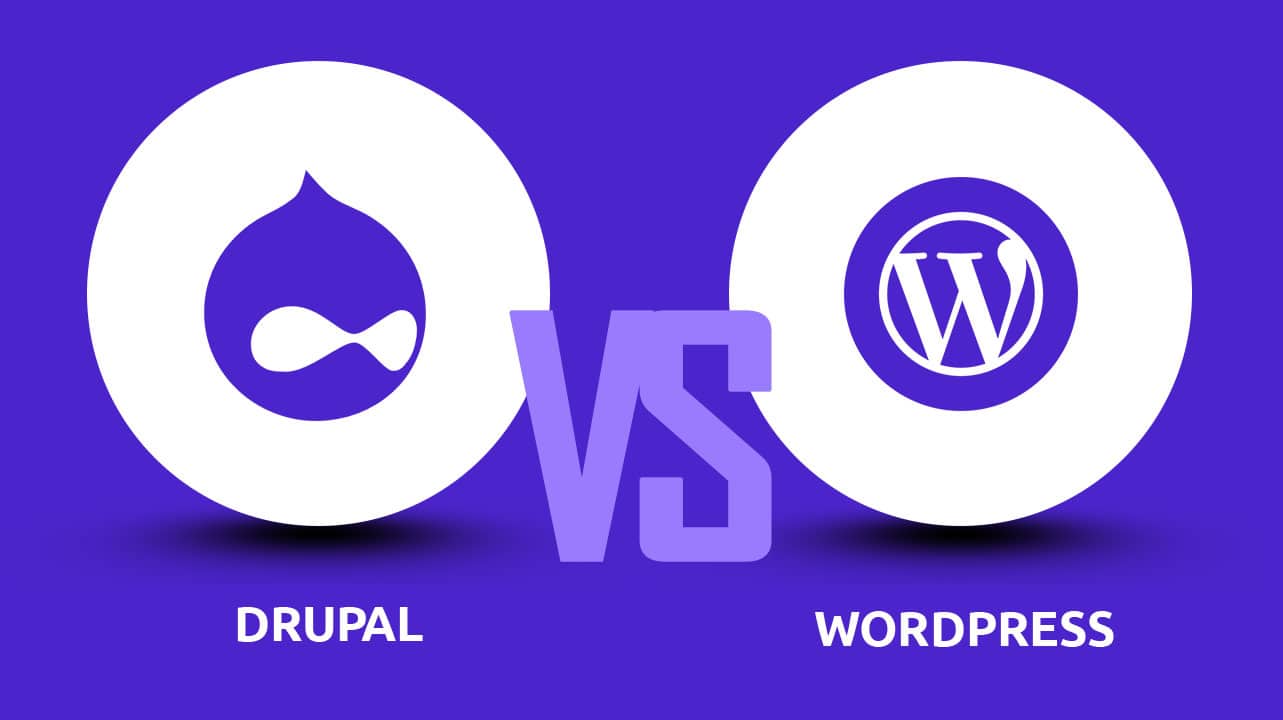Overview: Where They Stand in 2025/2026
Drupal 11 brings in innovations like Experience Builder, Site Recipes, and AI-driven personalization tools.
WordPress (6.x/7.x) continues to dominate the CMS landscape, powering 43%+ of all websites worldwide, making it the go-to solution for individuals, small businesses, enterprises, and global brands.
👉 Clearly, both CMSs are strong—but only one is accessible to everyone from bloggers to corporations: WordPress.
Ease of Use 👩💻
Drupal: Offers powerful features, but the learning curve is steep. It often requires professional developers for setup, maintenance, and updates.
WordPress: Anyone can install, customize, and launch a site within hours. With Gutenberg and page builders like Elementor, it’s more beginner-friendly than ever.
✅ Winner: WordPress – because simplicity saves you time and money.
Inspiration: BBC America and Time.com run on WordPress.
Design & Flexibility 🎨
Drupal: Custom design is possible, but limited themes mean more developer hours.
WordPress: Offers thousands of themes & plugins, plus drag-and-drop builders. From minimalist blogs to enterprise-level designs, WordPress adapts faster.
✅ Winner: WordPress – fast, affordable, and creative flexibility.
Inspiration: The Walt Disney Company Blogs.
Performance & Scalability ⚡
Drupal: Built for complex, high-traffic sites; great at scaling with enterprise projects.
WordPress: With modern hosting, caching, CDNs, and speed optimization plugins, WordPress now scales just as efficiently—and more affordably.
✅ Winner: WordPress – enterprise performance without enterprise costs.
Security 🔒
Drupal: Known for security-first, but requires constant developer monitoring and patching.
WordPress: Historically criticized, but with professional maintenance, firewalls, SSL, and security plugins, WordPress is now rock-solid.
✅ Winner: WordPress – secure, easier to manage, and affordable.
SEO & Marketing 📈
Drupal: SEO-ready but requires manual configuration.
WordPress: SEO is in its DNA. Plugins like Yoast and RankMath make optimization effortless.
✅ Winner: WordPress – a marketer’s dream.
Inspiration: Many leading media websites (e.g., TechCrunch) rely on WordPress for fast, SEO-driven content delivery.
E-commerce 🛒
Drupal: Supports e-commerce (via Drupal Commerce), but requires extensive customization.
WordPress: WooCommerce dominates the market, powering over 25% of e-commerce websites. Plugins, payment gateways, and themes make setup fast.
✅ Winner: WordPress – WooCommerce is unmatched for usability and flexibility.
Cost & Maintenance 💰
Drupal: High cost of development, hosting, and ongoing maintenance.
WordPress: Affordable hosting, thousands of free plugins/themes, and lower maintenance costs.
✅ Winner: WordPress – budget-friendly without compromising quality.
Check our Affordable WordPress Web Design packages tailored for startups & small businesses.
Market Share & Community 🌍
Drupal: ~1% of websites; smaller community.
WordPress: 43%+ of all websites, with the largest developer ecosystem and community in the world.
✅ Winner: WordPress – unrivaled adoption and support.
Final Verdict: WordPress is the Ultimate CMS in 2025/2026 🏆
After reviewing Drupal vs WordPress across usability, design, performance, security, SEO, e-commerce, cost, and community—it’s clear:
👉 WordPress wins every category.
- For small businesses → WordPress gets you online quickly.
- For e-commerce stores → WooCommerce is unbeatable.
- For large enterprises → With the right hosting and security setup, WordPress scales seamlessly.
Conclusion
While Drupal deserves respect for powering government portals and complex enterprise projects, WordPress is the clear winner for 2025/2026. Its unbeatable mix of ease of use, flexibility, scalability, cost-effectiveness, and SEO power makes it the ultimate CMS for nearly every type of project.








